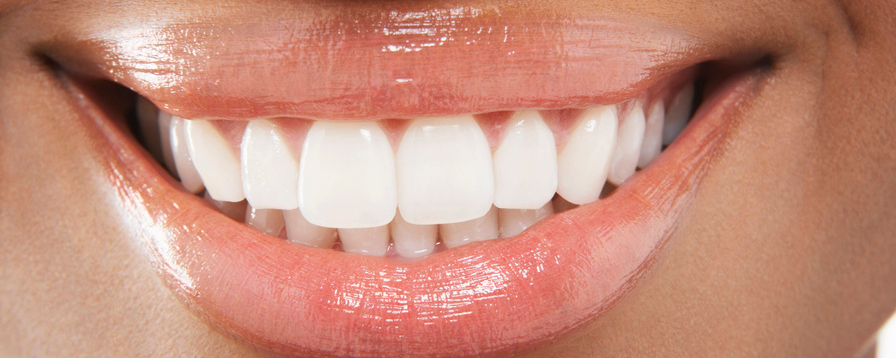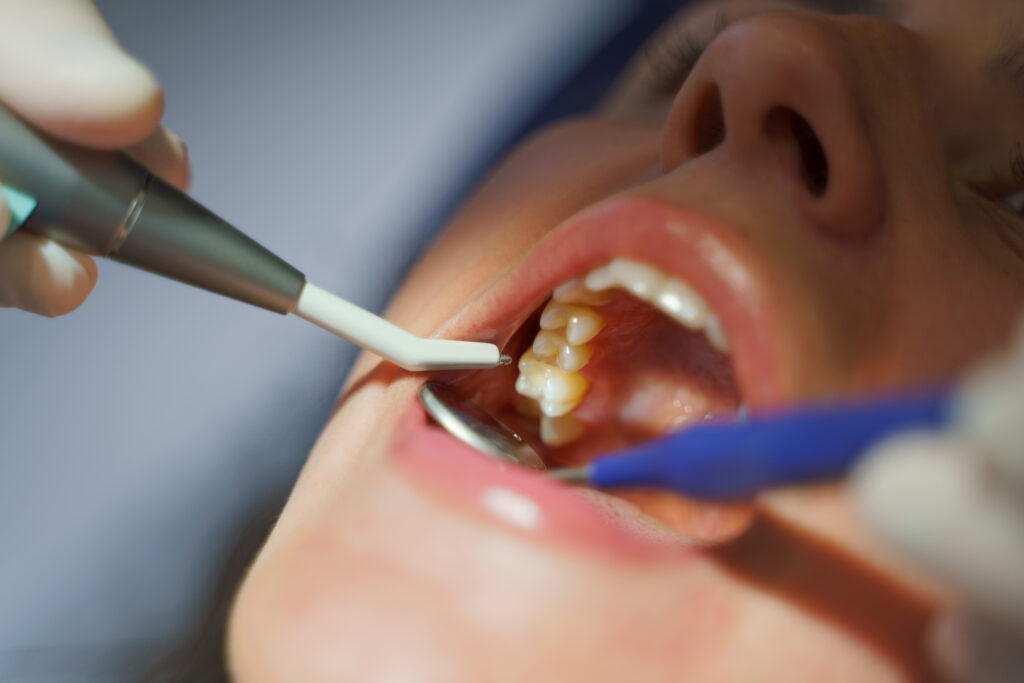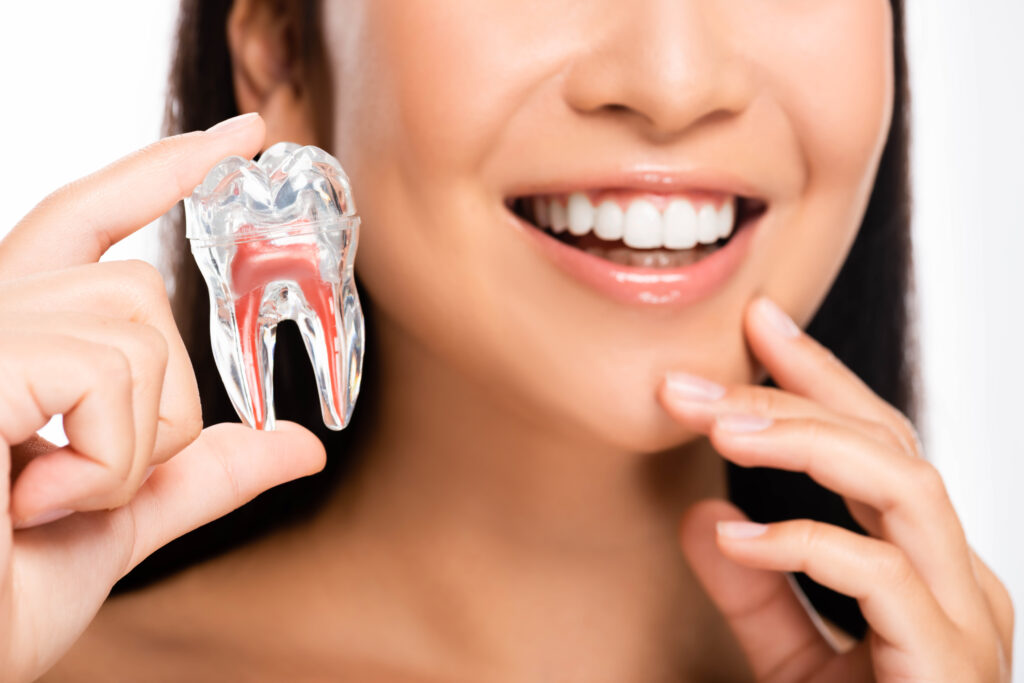
Gum recession is a common concern for many people and can be alarming when it starts to happen. It may make your teeth appear longer, create sensitivity, or even put your dental health at risk if left unaddressed. If you’ve noticed your gums receding, you might wonder, “Can gums grow back after receding?”
The short answer is no, gums do not naturally grow back once they have receded. However, there are effective steps you can take to prevent further recession and treatments to restore your gum health. By understanding the causes, prevention, and solutions for gum recession, you can better care for your smile and avoid future issues.
What Causes Gum Recession?
Receding gums don’t happen overnight. There are various factors that can lead to this condition, including lifestyle habits and oral health issues. Identifying the cause is often crucial for finding the right solution.
Common Causes of Gum Recession
- Gum Disease: One of the most common causes of gum recession is periodontal (gum) disease. This bacterial infection damages the gums and supporting structures, gradually causing them to pull away from the teeth.
- Aggressive Brushing: Brushing too hard or using a toothbrush with stiff bristles can wear away your enamel and irritate your gums, leading to recession over time.
- Teeth Grinding or Clenching: These habits can put excessive pressure on your teeth, causing the gums to recede.
- Smoking or Tobacco Use: Tobacco products increase the risk of gum disease and impair your gums’ ability to heal properly.
- Hormonal Changes: Shifts in hormones, such as during pregnancy or menopause, can make gums more sensitive and vulnerable to recession.
- Poor Oral Hygiene: Not brushing and flossing regularly allows plaque and tartar to build up, which can eventually cause gum recession.
- Genetics: Some people are simply more prone to gum issues due to their genetic makeup.
Understanding the root cause of your gum recession is the first step toward effective treatment and prevention.
Can Gum Recession Be Reversed?
While receded gums cannot regenerate on their own, there are treatments and strategies that can help protect your teeth, stop further damage, and even restore some of the lost gum tissue.
Non-Surgical Options
- Improving Oral Hygiene: Committing to brushing twice a day with a soft-bristled toothbrush and flossing daily ensures you remove plaque and prevent further gum issues. Pair your routine with a water flosser for a thorough cleanup along the gumline.
- Regular Dental Cleanings: Seeing your dentist for professional cleanings every six months is crucial. These visits remove tartar buildup, which you can’t reach with regular brushing and flossing.
- Desensitizing Toothpaste: If sensitivity is an issue, using a toothpaste designed for sensitive teeth can help protect exposed roots and reduce discomfort.
- Orthodontic Adjustments: If misaligned teeth or bite issues are causing undue stress on your gums, orthodontic treatment may help alleviate the problem.
Preventing Gum Recession
Prevention is always better than cure, and protecting your gums from recession starts with good oral hygiene and healthy habits.
Daily Practices for Healthy Gums
- Brush Gently Twice a Day: Use a soft-bristled toothbrush and fluoridated toothpaste, and focus on cleaning the gumline without using too much force. Proper brushing technique makes all the difference.
- Floss Every Day: Flossing removes plaque and food particles from between your teeth and along the gumline, where a toothbrush can’t reach.
- Use a Water Flosser: Water flossers are excellent for gently flushing out debris and bacteria from hard-to-reach areas, especially if you have sensitive gums or dental work like braces.
- Rinse with an Antibacterial Mouthwash: Incorporating mouthwash into your daily routine can help reduce plaque and fight bacteria that cause gum disease.
Avoiding Sugary Snacks
Frequent snacking on sugary treats without brushing afterward can contribute to plaque buildup, leading to gum problems. If you’re craving something sweet, try to eat it alongside a meal, when saliva production is higher and better for rinsing away sugars. And if you can’t brush your teeth right away, rinse your mouth with water to minimize the effects of sugar on your teeth and gums.
Regular Dental Visits
Scheduling checkups and professional cleanings every six months allows your dentist to catch early signs of gum problems and provide preventative care. These appointments are also an opportunity to discuss any concerns or ask about effective dental tools and techniques.
Lifestyle Habits to Avoid
- Stop Smoking: Tobacco use is one of the leading causes of gum disease, so quitting can significantly improve your oral health.
- Avoid Stress-Induced Teeth Grinding: Use a night guard if you grind your teeth in your sleep, as this habit puts unnecessary pressure on your gums.
Why Treatment Matters
Ignoring gum recession can lead to serious complications, including tooth loss, bone loss, and increased sensitivity. Receding gums can also leave your teeth more vulnerable to decay. Early action can prevent these issues and help you maintain a healthier smile.
Final Thoughts
While gums don’t grow back naturally after receding, there are many effective ways to restore and protect your oral health. By adopting a consistent oral hygiene routine, including brushing twice daily, flossing daily, using a water flosser, and visiting your dentist every six months, you can prevent further recession and keep your gums healthy.
If you’re concerned about gum recession or want to learn about advanced treatment options, don’t hesitate to contact Lane and Associates Family Dentistry. Our compassionate team of dental professionals is here to assess your needs and provide personalized solutions.
A healthier, brighter smile is within reach—with the right care and support, you can protect your gums and enjoy long-lasting dental health!



